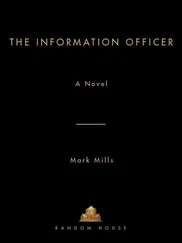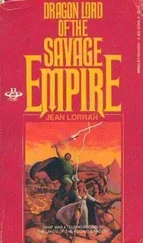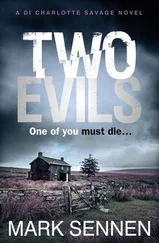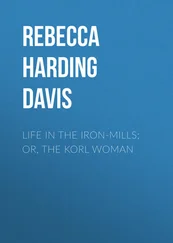Mark Mills - The Savage Garden
Здесь есть возможность читать онлайн «Mark Mills - The Savage Garden» — ознакомительный отрывок электронной книги совершенно бесплатно, а после прочтения отрывка купить полную версию. В некоторых случаях можно слушать аудио, скачать через торрент в формате fb2 и присутствует краткое содержание. Жанр: Старинная литература, на английском языке. Описание произведения, (предисловие) а так же отзывы посетителей доступны на портале библиотеки ЛибКат.
- Название:The Savage Garden
- Автор:
- Жанр:
- Год:неизвестен
- ISBN:нет данных
- Рейтинг книги:4 / 5. Голосов: 1
-
Избранное:Добавить в избранное
- Отзывы:
-
Ваша оценка:
- 80
- 1
- 2
- 3
- 4
- 5
The Savage Garden: краткое содержание, описание и аннотация
Предлагаем к чтению аннотацию, описание, краткое содержание или предисловие (зависит от того, что написал сам автор книги «The Savage Garden»). Если вы не нашли необходимую информацию о книге — напишите в комментариях, мы постараемся отыскать её.
The Savage Garden — читать онлайн ознакомительный отрывок
Ниже представлен текст книги, разбитый по страницам. Система сохранения места последней прочитанной страницы, позволяет с удобством читать онлайн бесплатно книгу «The Savage Garden», без необходимости каждый раз заново искать на чём Вы остановились. Поставьте закладку, и сможете в любой момент перейти на страницу, на которой закончили чтение.
Интервал:
Закладка:
"Shit," said Adam.
"Shit," said Harry, dropping the lighter and plunging them into darkness. "I burnt my bloody hand."
Adam could hear him groping around on the floor for his lighter. "Let's just wait a moment, let our eyes adjust."
Sure enough, out of the darkness three faintly glowing panels emerged: three sets of windows leaking light through their louvered shutters on the far side of the large room.
"We'll have to open one," said Adam. "Give me the lighter."
The fluid was running low, but he made it to one of the windows, picking his way past furniture. He pulled open the center window and forced the shutters apart. They groaned on their rusty hinges, and a desiccated bird's nest floated down to the terrace below.
The sunlight cut a rude swath across the room. The first thing Adam noticed were his footprints in the thick dust coating the floor—evidence of an intrusion, not that there was anything to be done about it now.
Though not as lofty as those downstairs, the room still had a certain grandeur about it. There was an imposing fireplace of white marble, the walls were paneled up to the dado rail, and the ceiling was bedecked with frescoes.
"Jesus," said Harry, "what a mess."
Broken and twisted pieces of furniture lay scattered around the room. There were rococo console tables, upholstered and gilded chairs, a delicate divan with shattered legs and a broken back.
An intricately carved frame was all that remained of the antique mirror above the fireplace. Its broken glass was strewn across the floor in front of the hearth, and in this debris lay the marble ashtray that one of the Germans had evidently hurled at the mirror.
"Paddler," said Harry. He was staring up at the ceiling.
The frescoes were eighteenth century from the look of them: overblown and slightly suffocating, with lots of ballooning flesh and ruddy-cheeked cherubs on show. The centerpiece was a depiction of Diana and her hunting party, but it looked more like the aftermath of a bloody skirmish. Diana had been shot between the eyes. She also sported two bullet holes instead of nipples. One of her attendants had been blasted in the groin and the cherubs had been picked off like hapless birds.
"Fucking philistines," murmured Harry.
Adam lingered when Harry wandered through to the adjacent rooms. The gramophone player on the table against the wall suggested that this was the scene of Emilio's murder.
According to Chiara, Emilio had fired into the gramophone to kill the music and attract the attention of the two Germans busy lobbing another piece of furniture out of the window. This detail of her account certainly appeared to be correct. There was a bullet hole in the gramophone's wooden casing. It was deep, but not so deep that the bullet had passed clean through. Which meant it should still be there, embedded in the wood. Only, it wasn't. Someone had removed it with the aid of a knife or some other such implement. The mouth of the hole was scored with nicks and notches where someone had gouged it free.
"Look at this," called Harry from the room next door.
He had thrown the shutters wide open. Adam peered outside. The workmen hammering together a low wooden dais at the center of the parterre were fully engrossed in their work, but he still drew the shutters back a touch.
"Hey," complained Harry.
"You can still see."
The room had obviously served as some sort of dormitory. There were four canvas cots still with their bedding, counterpanes folded down, pillows puffed up. They had made their beds, even knowing they'd be gone by nightfall.
"Nothing's been touched," said Harry.
This wasn't quite true. There were a couple of wooden filing cabinets in the corner. Their contents had been searched, the papers hastily replaced on the shelves. A few stray files lay shrouded in dust on the floor, like flatfish waiting for prey.
The next room was a corner room, and clearly the Germans' operations center. There were metal desks and cabinets, and a letterboard with cross-garterings was attached to the wall. A couple of typewriters had not made the last truck out, and judging from the ashes heaped in the grate, a large amount of paperwork had ended up as smoke. Harry seemed more than happy to poke around, so Adam slipped away.
He returned to the scene of the shooting and tried to picture the events unfolding around him: Emilio and Maurizio coming through the door, the two Germans busy at the window, their backs turned, oblivious to the fact that they had company because of the music blaring from the gramophone player. He saw Emilio taking in the destruction around him—the broken mirror, the bullet holes in the ceiling frescoes—before leveling his gun at the gramophone and firing.
It was easy to imagine an argument ensuing, as Chiara had described. What else had she said? That Emilio was standing near the fireplace when he was shot.
Adam wandered over. He examined the marble surround and the walls on both sides for evidence of a stray shot, but found nothing. That's when he noticed that the rug in front of the hearth was not centered. It had been dragged a few feet to one side. He crouched down and folded back the edge of the rug.
The stain was large and irregular. Emilio had bled a lot.
The pool of blood was still fresh when it had been covered up, judging from the mirror impression on the underside of the rug. This wasn't what attracted Adam's attention, though—it was the bullet hole in the boards near the middle of the stain, easy to miss if it hadn't been for the slanting light.
He leaned closer, running his finger around the rim of the depression. As with the gramophone player, there were score marks in the wood where the bullet had been removed. This must have occurred sometime after the event, or fresh blood would have seeped into the notches, whereas clean new wood showed through them.
The bullet might have vanished, but the grim truth remained: Emilio had not been fired on by the German from across the room; he had been executed at close range when already on the floor.
Hearing Harry returning, Adam folded back the rug and got to his feet.

The rest of the day passed in a mist of distraction. Harry made a phone call, then announced he was heading into town. It was his last chance to see the Swedish Finn. Her boyfriend would be back at the weekend, and Harry planned to leave for Venice on Sunday.
"A day to recover from the party, then I'm out of your hair. Tell me you'll miss me."
"I'll miss you."
"That was almost convincing."
"It's true."
"Then this might be the time to talk about you advancing me a small loan for the rest of my trip."
"As soon as I've figured out what my own plans are."
Which was easier said than done.
He felt numb, incapable of clear thought, after the discovery on the top floor. It was the closest thing to hard evidence against Maurizio—no, the only thing so far that approximated any kind of evidence. The rest was speculation rooted in hearsay and intuition.
The bullet hole in the floorboards changed everything. Emilio had been executed while on the floor. This was completely at odds with Maurizio and Gaetano's account of what happened that night, and pointed to their collusion in the killing. As for Benedetto, it was clear now that he had indeed discovered the truth. Who other than Benedetto had gouged the bullets free from the floor and the gramophone player? Torn between bringing down his only remaining son and doing nothing, Benedetto had opted for a third way—sealing off the top floor and burying Emilio in the family chapel, stark and close reminders to Maurizio of his heinous crime.
But Benedetto had not stopped there. His bizarre behavior in the immediate aftermath of Emilio's death hinted at another agenda. In closing the top floor, he had preserved the scene of the crime, with its telltale clues. Why had he done this? So that someone else might one day decipher the truth? And why had he then taken Emilio's gun and secreted it behind the plaque in the chapel, along with the bullets? Because those relics of the murder offered hard, ballistic proof that Emilio had been killed with his own weapon? It seemed quite likely. It seemed more than likely.
Читать дальшеИнтервал:
Закладка:
Похожие книги на «The Savage Garden»
Представляем Вашему вниманию похожие книги на «The Savage Garden» списком для выбора. Мы отобрали схожую по названию и смыслу литературу в надежде предоставить читателям больше вариантов отыскать новые, интересные, ещё непрочитанные произведения.
Обсуждение, отзывы о книге «The Savage Garden» и просто собственные мнения читателей. Оставьте ваши комментарии, напишите, что Вы думаете о произведении, его смысле или главных героях. Укажите что конкретно понравилось, а что нет, и почему Вы так считаете.











